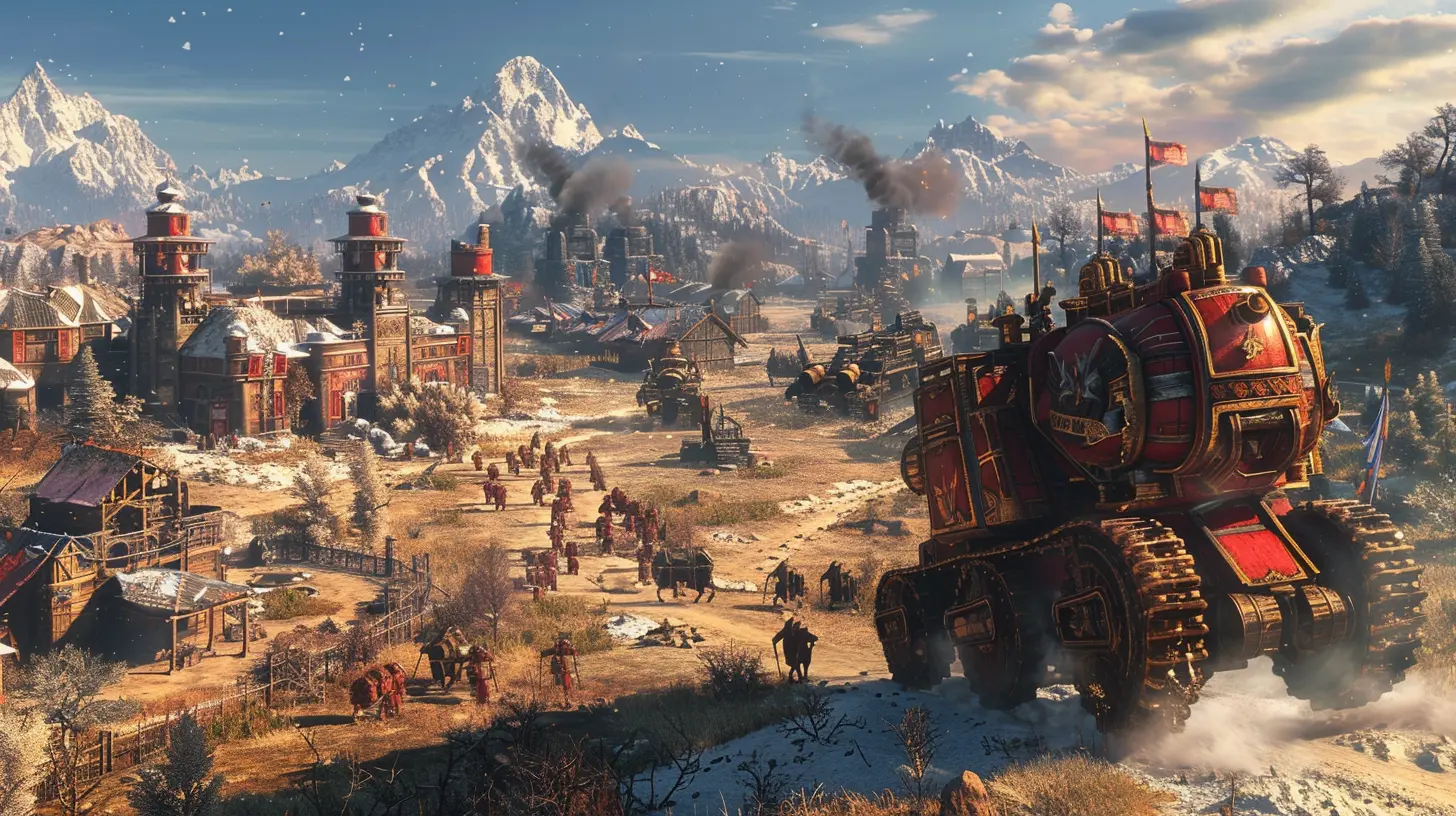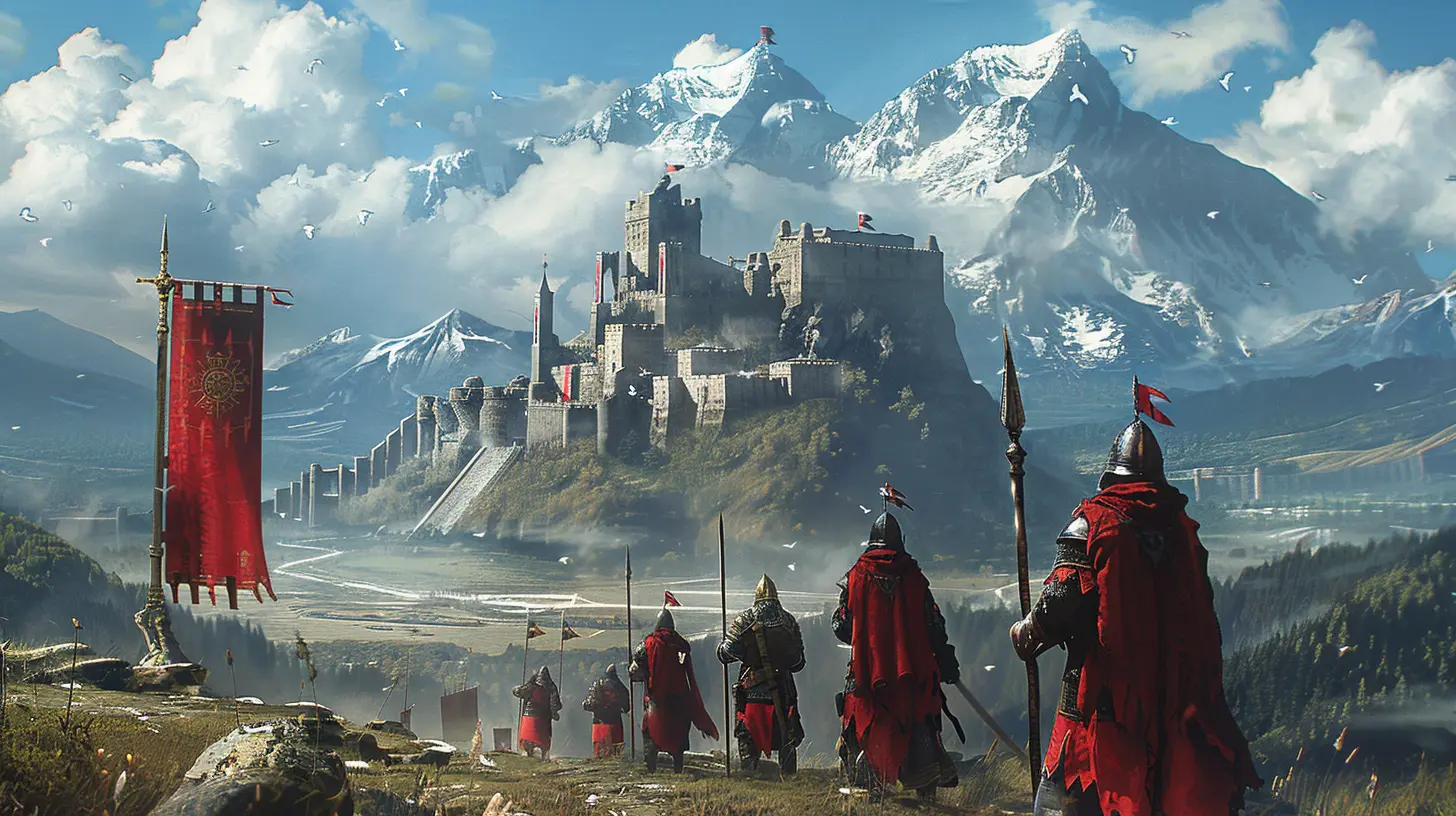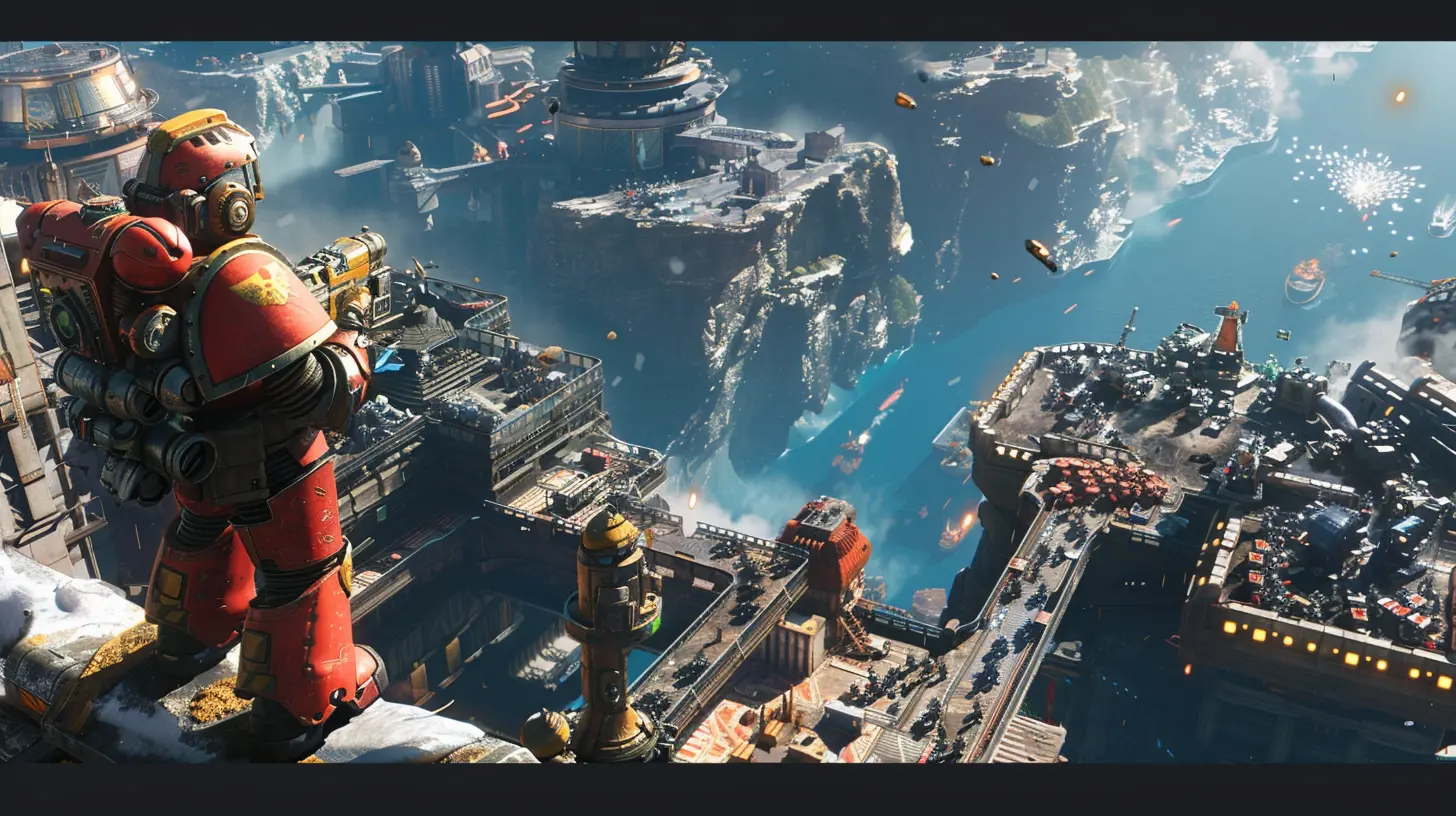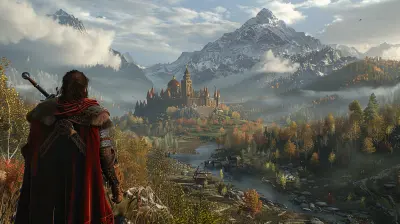Understanding the Importance of Allies in Multiplayer Strategy Games
23 May 2025
Have you ever played a multiplayer strategy game and thought, "Wow, this would be way easier if I had someone watching my back?" If you've been there, you're not alone. Multiplayer strategy games can be a thrilling test of your wits, reflexes, and decision-making skills, but let’s be real—going solo can feel like trying to juggle flaming swords while riding a unicycle. That’s where allies come in. Trust me, having a solid team by your side changes everything.
Whether you're storming enemy bases, defending against relentless waves of opponents, or hatching the ultimate plan to outsmart your foes, allies make all the difference. Let’s dive into why teaming up can turn a good game into a great one—not just for your win rate but for the sheer fun of it!
Why Allies Are a Game-Changer (Literally)
Multiplayer strategy games aren’t just battles of skill—they’re battles of brains. And let’s face it, two (or three, or four!) brains are better than one. Allies can boost your chances of success in ways you just can’t achieve on your own.Think about it: Even the most strategic players have blind spots. Maybe you're hyper-focused on resource collection, and suddenly, your base is under attack. An ally watching the map can alert you or even fend off the attackers for you. It’s like having a second pair of eyes when you’re driving—sure, you could do it alone, but wouldn’t it be safer (and more enjoyable) with someone helping you navigate?
Strength in Numbers: The Tactical Advantage
Let’s break this down. Every multiplayer strategy game has some core principles: attack, defend, gather resources, and outsmart your opponents. Balancing all of these on your lonesome? Near impossible. Here's how allies help:#
1. Division of Roles
Picture this: You’re in a super intense game of Age of Empires, and you’ve got to build your economy and train your army and scout the enemy’s movements. No pressure, right? With allies, you can divvy up responsibilities. One player focuses on gathering resources, another builds fortifications, and someone else leads the charge with the army. Perfect synergy.2. Covering Weaknesses
Not everyone’s great at everything. Your friend might be a resource-gathering genius, while you’re a tactical mastermind who knows exactly when to counter-attack. Together, you can compensate for each other’s weaknesses. It’s like forming the ultimate squad in a heist movie—everyone brings something to the table.3. Coordinated Attacks
Ever heard the phrase “divide and conquer”? It’s a whole lot easier when you’ve got allies. While one of you distracts the enemy, the other can launch a surprise attack from the flank. Whether it’s a well-timed ambush or simultaneous sieges, coordinated strikes are often what win games.
The Emotional Side of Teaming Up
Let’s take a moment to address the not-so-obvious benefit of allies: the emotional side of things. Multiplayer games can be stressful—like, “I just yelled at my screen for 30 minutes” kind of stressful. Having friends on your team makes the experience 100 times more enjoyable.1. Less Lonely, More Fun
Gaming solo can feel isolating, especially in strategy games where there’s not a lot of immediate action. Teaming up adds social interaction. You can joke around, share crazy strategies, or even commiserate when things go wrong. It’s about building memories, not just winning.2. Motivation During Tough Times
We all have those moments when the tide of the game turns against us, and it feels like all hope is lost. A good ally isn’t just there for the tactical stuff—they’re there for the pep talks. “We’ve got this!” they’ll say, even when it feels like you’ve already lost. Sometimes, that’s all it takes to turn things around.3. Celebrating Victories Together
Let’s be honest: Winning is so much better when you have someone to celebrate with. There’s nothing quite like pulling off an epic victory in a game and immediately hearing your teammates cheer. It turns a moment of triumph into a memory you’ll talk about for ages.Building Trust: The Foundation of a Great Alliance
If you’ve read this far, you’re probably thinking, “Okay, so allies are great, but how do I make sure I’m a good teammate?” Glad you asked! Successful alliances in multiplayer strategy games hinge on trust and communication. Without these, an ally can quickly become dead weight—or worse, a liability.1. Communication Is Key
Want to know the quickest way to lose a game? Poor communication. Whether it’s through voice chat, text, or even in-game signals, keeping your team informed is crucial. Tell them when you need backup, when you’re launching an attack, or if there’s a sneaky enemy on the move. Silence leads to chaos.2. Don’t Be a Lone Wolf
Nobody likes the teammate who runs off and ignores the team’s plan. Sure, you might pull off a cool move every now and then, but more often than not, you’ll end up leaving your team vulnerable. Stick with the group—even if it means sacrificing a bit of personal glory.3. Share Resources and Intel
Have extra resources? Share them. Did you spot an enemy’s poorly defended base? Tell your team. Hoarding benefits no one, and sharing information or supplies can be the difference between victory and defeat.When Things Go Wrong: Handling Conflicts with Allies
Alright, let’s keep it real—teaming up isn’t always sunshine and rainbows. Sometimes, you and your allies won’t see eye-to-eye. Maybe someone hogged resources, or maybe a poorly timed attack ruined your plans. It happens! The key is to handle conflicts maturely.1. Don’t Rage Quit
Losing your cool only makes things worse. Instead, try calmly discussing what went wrong and how you can prevent it next time. Remember, it’s just a game—and the goal is to have fun (even if the stakes feel sky-high).2. Adapt to Different Playstyles
Not everyone plays the way you do. Some players are hyper-aggressive, while others are ultra-defensive. Learn to adapt to your allies’ playstyles instead of trying to force them to play your way. Flexibility is key.Famous Examples of Great Alliances
To wrap things up, let’s look at some iconic alliances in multiplayer strategy games. These are the stories that show just how powerful teamwork can be:- StarCraft II: Team matches often highlight incredible coordination. Remember when professional players executed the infamous "Archon Toilet" strategy? It only worked because they trusted each other’s timing to perfection.
- League of Legends: While technically more of a MOBA, the game thrives on teamwork. From perfectly synchronized ultimates to epic base defenses, every major play requires allies working as one.
- World of Warcraft Raids: Massive raids wouldn’t be possible without the collective effort of dozens of players. From healers keeping the tanks alive to damage-dealers pulling off perfectly-timed strikes, these alliances are legendary.
Final Thoughts: Allies Make the Game What It Is
In multiplayer strategy games, allies aren’t just optional—they’re essential. They make the experience richer, more fun, and a whole lot less stressful. Whether you’re dividing tasks, pulling off epic combos, or just having a laugh after a tough match, allies bring a layer of depth that solo play simply can’t match.So, next time you log in, consider reaching out to someone on your team. Start building that trust, create memorable moments, and maybe—just maybe—win the game together. Because when it comes to multiplayer strategy games, the real victory is having allies you can count on.
all images in this post were generated using AI tools
Category:
Strategy GamesAuthor:

Jack McKinstry
Discussion
rate this article
3 comments
Arlo McClellan
Alliances enhance strategy, offer diverse tactics, and foster teamwork, significantly impacting multiplayer game outcomes.
June 17, 2025 at 4:05 PM

Jack McKinstry
Thank you for your insightful comment! Alliances truly are crucial for effective strategy and teamwork in multiplayer games.
Delia Hudson
Allies can turn the tide in strategy games!
June 4, 2025 at 4:28 PM

Jack McKinstry
Absolutely! Allies can significantly shift the balance of power, providing crucial support and resources that can lead to victory.
Wade Lambert
Great insights! Allies truly make or break the game experience!
May 28, 2025 at 3:23 PM

Jack McKinstry
Thank you! I'm glad you found the insights valuable. Allies can significantly enhance the gameplay experience!



